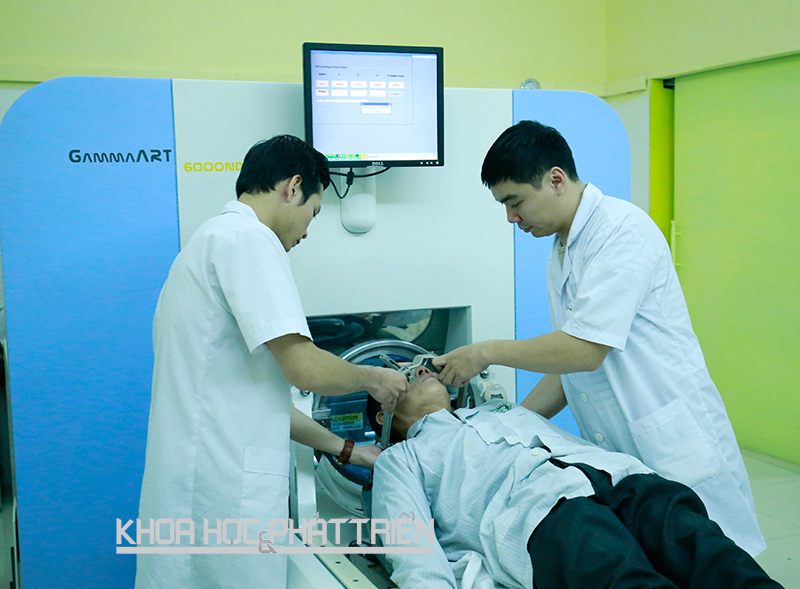
Vietnam has been quick to grasp trends and effectively use radiation and radioisotopes in the healthcare sector, according to Tran Duc Thiep, a member of the National Council for the Development and Application of Atomic Energy.
 |
|
Vietnam has been effectively radiation and radioisotopes in the healthcare sector. |
Vietnam has been quick to grasp trends and effectively use radiation and radioisotopes in the healthcare sector, according to Tran Duc Thiep, a member of the National Council for the Development and Application of Atomic Energy.
Such efforts even preceded the government’s Decision 1958 on developing and applying radiation in healthcare in 2011.
Vietnam has obtained brilliant achievements in all three fields of diagnosis, treatment and prevention.
In diagnosis, medical facilities use X-rays to find injuries and inject nuclear isotopes to identify radiation via images of parts of the human body. Vietnam now has 45 radiographic devices (over 35 SPECT and SPECT/CT and 9 PET/CT).
According to a report, the total number of MV radiotherapy equipment is 68, including 41 LINAC linear accelerators, 01 Cyber-Knife, 09 Co-60, 06 Gamma-Knife and 11 HDR (high-dose rate) machines.
However, Thiep said that medical facilities using radiation technology do not have close connections. If the facilities cooperate, Vietnam would have a network of medical equipment using radiation technology which would improve the quality of diagnosis and treatment.
According to Thiep, Vietnam has great potential to develop radiation technology in nuclear medicine as well as production of radioisotope and radioactive materials, because in the future the country will have a high-capacity nuclear research reactor and accelerators that produce isotopes.
However, he pointed out that Vietnam still has not paid appropriate attention to training and research in the field.
Each imported diagnostic imaging device is associated with its own imaging program. However, Vietnam needs to develop image display and processing software to avoid reliance on expensive foreign software.
As for the production of radioactive isotopes, Hoang Anh Tuan, Director General of Atomic Energy, said the total demand of radioactive pharmaceuticals in the healthcare sector is nearly 1400Ci per year, of which the Da Lat Nuclear Research Institute provides about 400Ci per annum.
About 250 Ci is produced on cyclotron accelerators, while the remaining 750 Ci is fed by imports.
Tuan said a minicyclotron, the small accelerator with supporting parts called a Biomarker Generator System for Molecular Imaging made in the US, has many advantages (smaller size, simpler operation, and fewer technicians needed and higher safety). It can provide FDG daily to PET/CT on the spot.
Therefore, he said the machine could be used to produce radioisotopes.
(Source: VNN)





![[Photo series] Admiring the most beautiful riverside road in Dong Nai before its technical traffic opening](/file/e7837c02876411cd0187645a2551379f/012026/nen_20260114174655.jpg?width=500&height=-&type=resize)